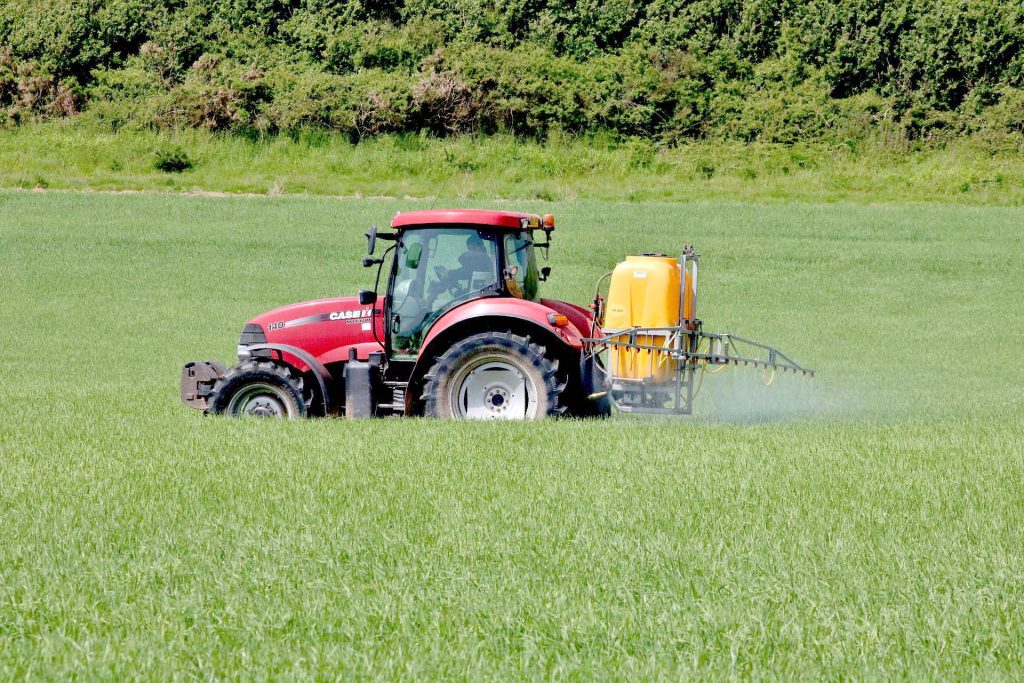
Among certain growers of a few California crops, an established weed control chemical has become as common as bread and butter. They cringe when they think environmental purists might want to restrict its use.
The popular chemical is Dacthal, used almost universally by growers of some of the brassica crops, such as broccoli, Brussels sprouts, bok choy, radish and kale. And just so you know, should you want to discuss the issue with them, the first syllable of the material is pronounced as spelled, the second rhymes with ball.
Growers, most of them in Monterey County and scattered along the coast to Santa Maria, will tell you they like Dacthal because it is applied before weeds emerge, usually early spring, has only a short life in the soil, is readily available and is very effective against unwanted annual grasses and some of the broad-leaved weeds that plague them most.
Some growers of onions are also dedicated fans of Dacthal, as well as those who produce radishes, kale, rapini, mustards, gai lon and kohlrabi. Although none of the crops protected by the material are among California’s high-volume producers they are highly marketable, and for those who grow them, essential.
It has been reported that revenue losses if Dacthal were not available, causing crops to be abandoned, would be $25.4 million for broccoli, $17.9 million for cabbage and $5.1 million for dry onions.
So why are they wondering if Dacthal will be available on a continuing basis? Traces of it –– or at least its degradates –– were detected in 2018 in groundwater under the areas where it is most used. When that happens a review is automatically triggered under California’s Pesticide Contamination Prevention Act.
The purpose of the formal review is to determine if Dacthal can continue to be applied, and if so, under what conditions. One consideration is whether a regulatory response will cause “severe economic hardship” for California agriculture.
Probably because of the potentially dire circumstances a group of eight environmentally sensitive scientists and researchers from the California Department of Food & Agriculture and the University of California, Davis, have reported on their study of the issues in the November- December issue of the Agriculture and Resource Economics Update published at Davis. Rachael Goodhue, professor and chair of the Department of Plant Sciences at Davis, can be contacted regarding their report.
The economic impact of a de-registration or other regulation is determined by its effects on costs, yield, price and acreage of the affected crops. The lack of an effective substitute for Dacthal complicates calculations. Absence of cost studies for seven of the crops that rely on the chemical made it necessary to limit evaluation of possible changes in pesticide costs and yields to cauliflower, Chinese cabbage, Brussels sprouts, kale, leek, kohlrabi and green onions.
Although the issue with Dacthal and its possible contamination of groundwater involves only a few crops, the findings have to be taken seriously. We are on the forefront of a mammoth undertaking –– replenishing underground water basins in several areas of the state. This project offers enormous hope, but underground supplies must remain pure for it to be successful.
Agricultural chemicals are high on most environmentalists’ enemies list. But Dacthal, with its strong attraction to only a few crops of limited production and popularity, has alerted researchers and agricultural scientists to a serious issue without causing widespread concern. Further attention will be given to its subtle encroachment on water purity lest other chemicals follow its performance.
It may be time to praise this agricultural chemical for what it has taught through its performance and its persistence.








